Trump faces arraignment. Here's what happened when other U.S. politicians were indicted
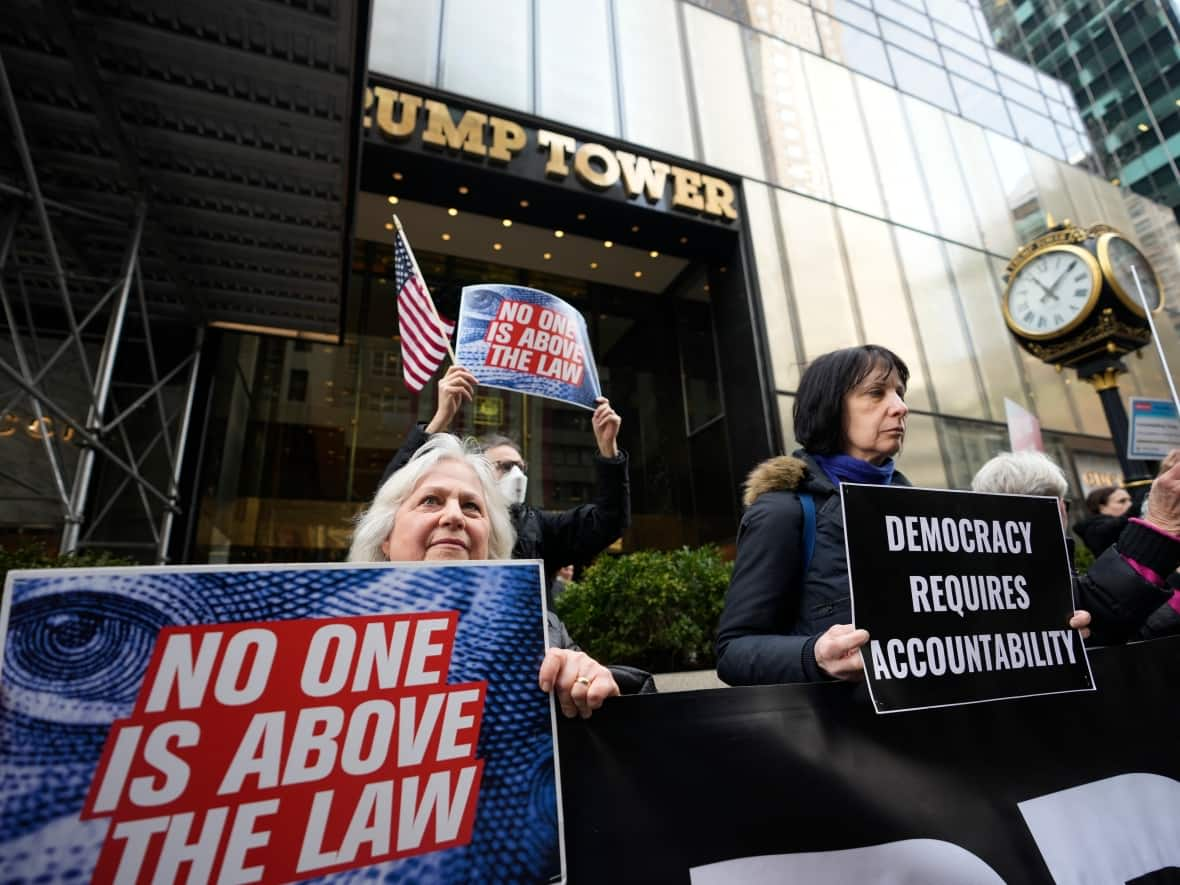
Donald Trump is the first U.S. president to be indicted, and his arraignment is likely the beginning of a lengthy process before any trial on charges he'll face involving hush-money payments to an adult film actress.
Richard Nixon was pardoned shortly after resigning by successor Gerald Ford in 1974 over the Watergate scandal, and Bill Clinton struck a deal to avoid a potential indictment for perjury as a result of the sprawling probes that occurred during his presidency.
Trump, a candidate for president again, faces potential legal exposure in multiple other investigations.
A handful of executive branch officials before Trump have faced indictment, with even more cases involving legislative branch figures.
The examples below involve federal politicians cited for alleged or confirmed in-office or campaign misdeeds. Spoiler alert: Most didn't see the inside of an institutional facility.
The vice-president
Spiro Agnew, who loathed the media long before Trump, pleaded no contest in 1973 to one count of tax evasion of approximately $13,000 US — $122,000 in today terms. Richard Nixon's vice-president made the plea after learning he was facing indictment in a probe involving allegations he accepted cash kickbacks from developers while holding various Maryland political offices in the 1960s.
He was sentenced to three years of unsupervised probation and fined $10,000. Agnew denied guilt but resigned to "restore unimpaired confidence and implicit trust" to the office of the vice-president.

The attorney general
John Mitchell was the highest-profile of a handful of Nixon White House figures who went to prison for actions that helped to cover up the burglary of the Democratic National Committee at the Watergate complex. He served 19 months in prison on charges of conspiracy, obstruction of justice and perjury.
Mitchell's wife, Martha, was a source to reporters during the Watergate affair, with Sean Penn and Julia Roberts portraying the couple in the 2022 miniseries Gaslit. The couple was in the process of divorcing when Martha Mitchell died in 1976.
When he was sentenced to prison in 1975, the former attorney general said: "It could have been a hell of a lot worse. They could have sentenced me to life with Martha Mitchell."
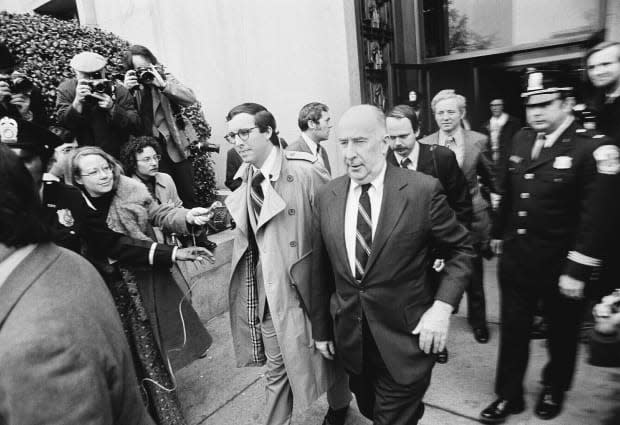
The defence secretary
Ronald Reagan defence secretary Caspar Weinberger was indicted in 1992 by an independent counsel investigating the 1980s Iran-Contra scandal, and charged him with obstruction of justice, perjury and making false statements.
Weinberger was reportedly offered a deal to plead guilty to a misdemeanour in exchange for testifying against Reagan and other White House officials. He rejected that overture, receiving a Christmas Eve pardon along with five others charged in the arms-for-hostages scandal, granted by president George H.W. Bush, who had been Reagan's vice-president.
Weinberger was weeks away from trial and faced up to five years in prison if convicted.
"I am concerned by any action that sends a signal that if you work for the government, you're beyond the law," said Clinton, the president-elect at the time.
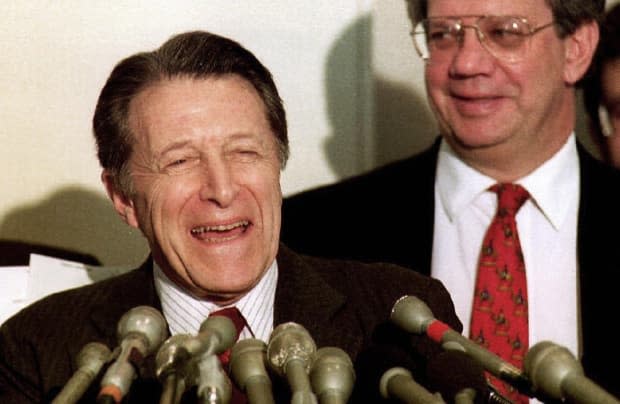
The housing secretary
Henry Cisneros, the married mayor of San Antonio, embarked on an affair with a married woman in the 1980s that would have implications for both of them years later, when he was secretary of housing and urban development.
Cisneros continued to provide some financial support to the woman after the affair ended, but undervalued that amount by six figures in his FBI background check for the housing secretary position. In 1997, he was indicted on charges including conspiracy and obstruction of justice.
He would plead guilty to lying to the FBI, the case ending with a $10,000 fine but no jail time or probation. Prosecutors needed the testimony of the mistress, but her reliability was questionable after committing bank fraud on a loan on a house purchased with some of Cisneros' contributions.
Cisneros was later pardoned by Clinton.
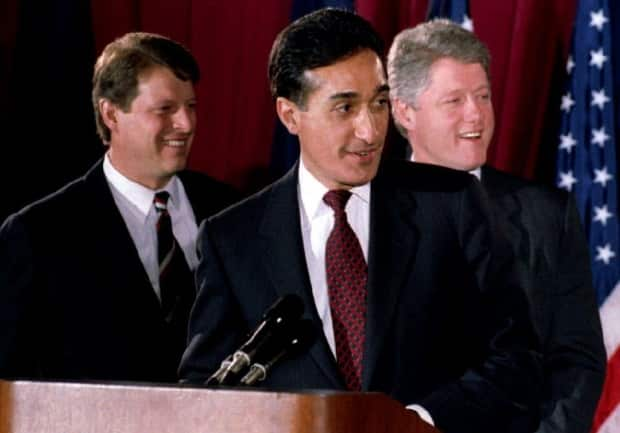
The senators
When Robert Menendez was indicted in 2015, the Washington Post reported he was the 12th sitting senator to ever be indicted. The New Jersey Democrat is still in office, as jurors were deadlocked in 2017 on charges he faced involving allegations he helped a wealthy friend and received luxury trips and campaign donations in return. The case was not retried.
Other cases involving senators resulted in acquittals, reversals on appeal and a plea deal not involving prison, while one early-1900s senator died before his appeal was heard.
Just two sitting senators spent any length of time in prison: Kansas Republican Joseph Burton served five months after a 1904 mail fraud case, while New Jersey Democrat Harrison Williams served 21 months in the 1980s in the Abscam bribery affair, which also ensnared a few Congress members and inspired the 2013 movie American Hustle.
Democrat Ted Kennedy wasn't indicted by a grand jury for a fatal 1969 car accident that he didn't report until the next day. The reasons why have been hotly debated.
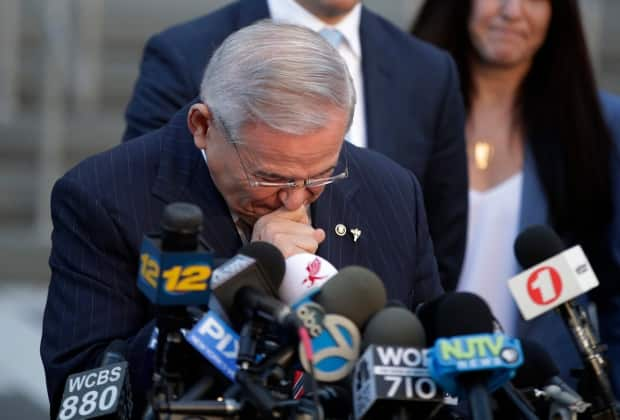
The representatives
The House of Representatives is a 435-member body and more than 11,000 people have served in the chamber. Since 1980, about two-dozen have spent time behind bars. California Republican Duke Cunningham and the Trump-like Ohio Democrat James Traficant each spent around seven years in prison in corruption cases this century, among the longest-served sentences for U.S. politicians.
A potential prison sentence didn't stop Tom DeLay from going on Dancing With the Stars:
In arguably the most famous recent case, House Republican leader Tom DeLay in 2005 was indicted on money laundering and conspiracy charges. DeLay competed on Dancing with the Stars while awaiting trial, and was convicted but never saw prison, as an appeals court overturned the verdict due to "legally insufficient" evidence.
In late 2020, Trump pardoned Chris Collins and Duncan Hunter and commuted Steve Stockman's sentence. Collins and Stockman were in the midst of serving multi-year prison sentences for insider trading and money laundering, respectively, while Hunter was about to begin a months-long sentence for misusing campaign funds.
The presidential candidates
Trump won't be the first presidential candidate under indictment. Republican Rick Perry faced two charges from a Texas grand jury in 2014 for abuse of power while governor of the state, in a convoluted case in which he appeared to pressure a legislator to resign.

By early 2016, Perry's presidential campaign was over and an appeals courts tossed the indictment, ruling charges contravened the state constitution.
In a case that has been compared to Trump's, Democrat John Edwards embarked on a presidential campaign for 2008 while engaging in an extramarital affair. Three years later, prosecutors handed down an indictment that carried significant prison time, accusing Edwards of using money from wealthy donors to support his pregnant lover.
Edwards was ultimately acquitted at trial on one count, the jury deadlocked on the other counts, and prosecutors opted not to retry him.
The Trump case has also resurfaced the Eugene Debs saga. The Socialist Party of America leader was convicted of sedition after publicly promoting resistance to the military draft in 1918.
Still, he ran for president in 1920 while in prison, earning 3.4 per cent of the vote. Months later, his sentence was commuted.


